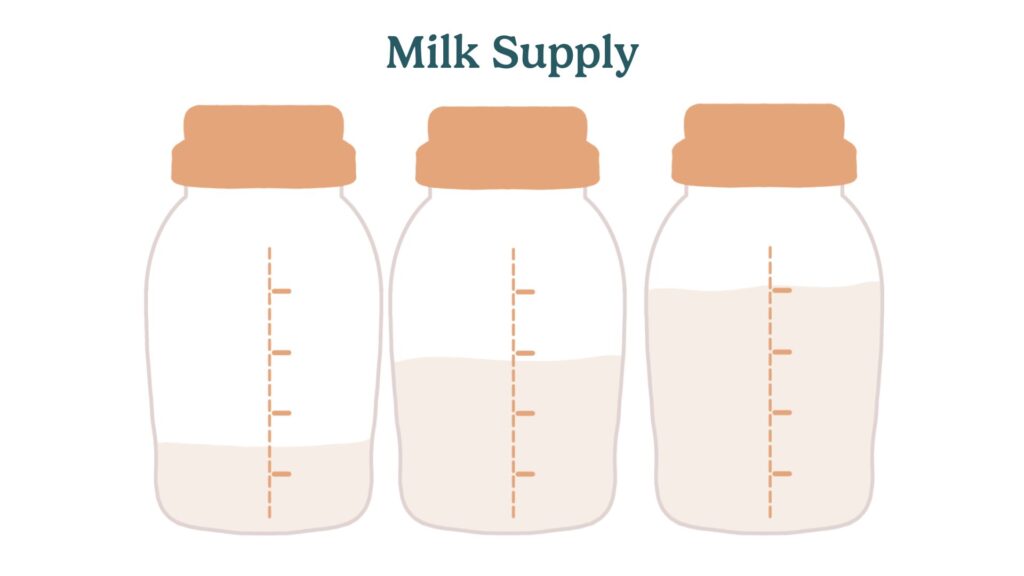milk supply

Milk supply
Milk supply refers to the amount of breastmilk produced by a mama to meet her baby's nutritional needs. Adequate milk supply is essential for your baby's growth and development, and it's influenced by several factors, including how often and effectively your baby nurses, your overall health, and your breastfeeding techniques.
What to watch out for
Here are some key points to consider and watch out for regarding milk supply:
- Signs of low milk supply: Your baby might not be getting enough milk if they have fewer wet diapers, seem fussy or unsatisfied after feedings, or have poor weight gain. If you notice these signs, it’s important to address them quickly. Read more about signs of low milk supply.
- Frequent nursing: The more your baby nurses, the more milk your body will produce. Aim to nurse on demand, at least every 2-3 hours in the early weeks.
- Effective latch: A proper latch helps your baby effectively removing milk from your breast, which helps stimulate more milk production. If you're having trouble with latching, a lactation consultant can provide valuable guidance. Read more about a good latch and other tips.
- Hydration and nutrition: Staying well-hydrated and maintaining a balanced diet can support milk production. Make sure to drink plenty of water and eat nutritious foods.
- Avoiding supplements: Introducing formula or solid foods too early can decrease your milk supply. Breastfeed exclusively for the first six months if possible, as recommended by health experts.
If you’re concerned about your milk supply, try increasing the frequency of nursing sessions or pumping between feedings. If these measures don’t help, get help from a lactation consultant or healthcare provider. Read more about ways to increase your milk supply.
Physical limitations or health circumstances
Certain conditions and circumstances can affect milk supply:
- Hormonal imbalances: Conditions like polycystic ovary syndrome (PCOS) or thyroid disorders can interfere with milk production. Managing these conditions with the help of a healthcare provider is important.
- Previous breast surgery: Surgeries such as reductions or augmentations might impact milk ducts and glandular tissue, potentially affecting milk supply. Discuss your surgery history with a lactation consultant for personalized advice.
- Medications: Some medications can affect milk production. Always check with your healthcare provider about any medications you're taking.
- Stress and fatigue: High stress levels and lack of sleep can negatively impact milk supply. Prioritize rest and seek support from family and friends to manage stress.
Other terms
Here are some related terms that can help you better understand and manage milk supply:
- Prolactin: The hormone responsible for milk production. Prolactin levels increase with frequent breastfeeding.
- Oxytocin: Often called the "love hormone," it helps with milk let-down and bonding with your baby.
- Let-down reflex: The reflex that releases milk from the alveoli into the ducts, allowing it to flow to your baby. Effective let-down is crucial for maintaining milk supply.
- Cluster feeding: When your baby nurses frequently during certain times of the day, usually to increase milk supply.
- Pumping: Using a breast pump to express milk can help maintain or increase milk supply, especially if your baby isn't nursing effectively. Read more about pumping tips.
- Engorgement: Overfull breasts can lead to discomfort and reduced milk supply if not managed. Nurse frequently to avoid engorgement. Read more about managing engorgement.
- Galactagogues: Foods or supplements that can help increase milk supply. Consult with a healthcare provider before using these. Read more about galactagogues.


